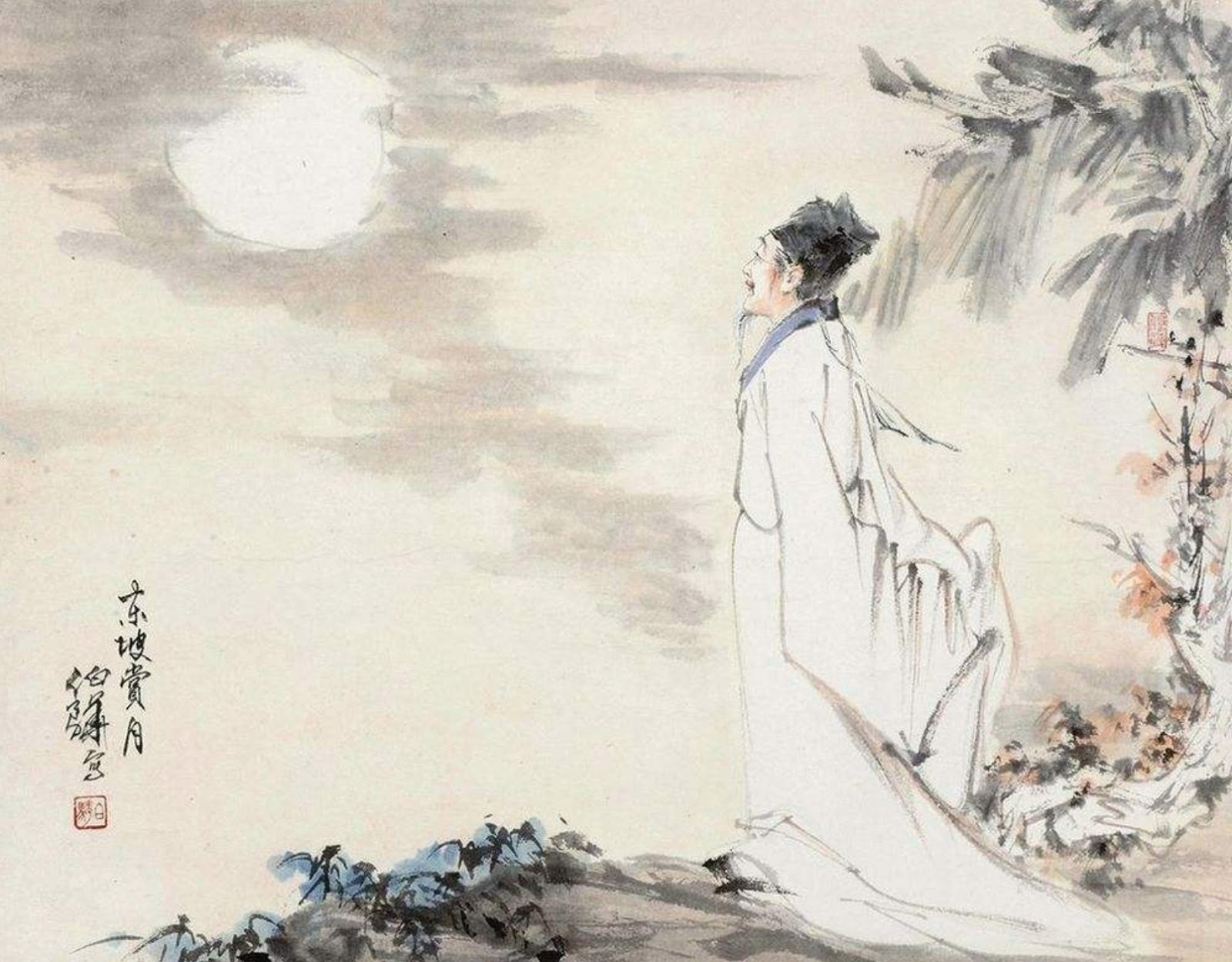Friday Song: “Wishing We Would Last Forever” and Su Shi
“Wishing We Would Last Forever” (但愿人长久 dànyuànrénchángjiǔ) is a Mandarin pop ballad sung by Chinese singer-songwriter/actress Faye Wong. Released on July 1, 1995, in her album The Decadent Sounds of Faye (菲靡靡之音 fēimímízhīyīn), the song was composed by Taiwanese musician/author Vincent Liang 梁弘志 and arranged by Malaysian music arranger Alex San 辛伟力, with lyrics derived from a well-known poem, “Water Melody” (水调歌头 Shuǐdiào Gētóu), by Su Shi 苏轼.

In celebration of National Poetry Month, today’s song has its roots in a Chinese classical poem from the Song dynasty, written by Su Shi 苏轼 in the mid-autumn of 1076.
“Wishing We Would Last Forever” (但愿人长久 dànyuànrénchángjiǔ) is a Mandarin pop ballad sung by Chinese singer-songwriter/actress Faye Wong. Released on July 1, 1995, in her album The Decadent Sounds of Faye (菲靡靡之音 fēimímízhīyīn), the song was composed by Taiwanese musician/author Vincent Liang 梁弘志 and arranged by Malaysian music arranger Alex San 辛伟力, with lyrics derived from a well-known poem, “Water Melody” (水调歌头 Shuǐdiào Gētóu), by Su Shi 苏轼.
The poem is written in the cí 词 style — a type of lyric poetry in traditional Chinese poetry characterized by uneven line lengths, and rhyme schemes and tonal patterns based upon melodic tunes. Su Shi had written this poem during the Mid-Autumn Festival amidst the spirit of family reunion, transposing his longing for his beloved brother’s return into words. One particular excerpt from the poem — “May we all be blessed with longevity / Though thousands of miles apart, we still share the beauty of the moon together” (但愿人长久, 千里共婵娟 dànyuànrénchángjiǔ qiānlǐgòngchánjuān) — is often used colloquially to express a yearning for friends and relatives who are far away, as well as to give blessings for happiness. The line translates the sentiment “I hope you live a long and peaceful life, and though we are far apart in distance, we will appreciate the beauty of this moon together.”
The first modern rendition of this lyric poem was sung in 1983 by the legendary Taiwanese singer Teresa Teng 邓丽君. Her rich and dreamlike vocals perfectly embody the essence of the poem — gentle and emotional, at times sorrowful and at times sanguine. It has since become one of her most popular songs and has been covered by various artists. Faye Wong delivered her spin on the song a decade later as a tribute to Teng, who had passed away two months prior to the song’s release. By contrast, Wong’s version employs more instrumentation, veering away from the traditional Chinese ballad sound and adding a more youthful, starry-eyed flavor to Teng’s mature sensibility.
Below are the lyrics and translations of “Wishing We Would Last Forever”:
明月几时有 / When will the moon be clear and bright?
把酒问青天 / With a cup of wine in my hand, I ask the blue sky
不知天上宫阙 / In the heavens on this night
今夕是何年 / I wonder what season it would be?
我欲乘风归去 / I’d like to ride the wind to fly home
唯恐琼楼玉宇 / Yet I fear the crystal and jade mansions
高处不胜寒 / Are much too high and cold for me
起舞弄清影 / Dancing with my moonlit shadow
何似在人间 / It does not seem like the human world
转寒朱阁 / The moon rounds the red mansion
低绮户 / Stoops to silk-padded doors
照无眠 / Shines upon the sleepless
不应有恨 / Bearing no grudge
何事长向别时圆 / Why does the moon tend to be full when people are apart?
人有悲欢离合 / People may have been sorry or joyful, near or far apart
月有阴晴圆缺 / The moon may be dim or bright, waxing or waning
此事古难全 / This imperfection has existed since the beginning of time
但愿人长久 / May we all be blessed with longevity (wishing we would last forever)
千里共婵娟 / Though thousands of miles apart, we still share the beauty of the moon together
April marks National Poetry Month, and we’re running a series of articles to celebrate it. Check out some samples below:
- Li Bai’s ‘Gazing at a Waterfall on Mount Lu’
- Hai Zi: The life and death of Chinese poetry’s mystical martyr
- Du Fu’s ‘Ballad of an Old Cypress,’ a poem of longing and lament
Friday Song is SupChina’s weekly sign-off. Let us know what you thought of the week that was in the comments below, or email editors@thechinaproject.com.





